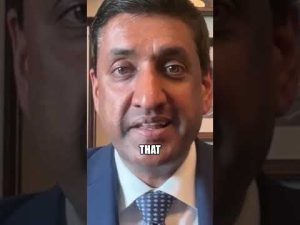**The Delicate Dance of Free Speech: Conversations on Justice and Vigilantism**
In the age of social media where every opinion can become a viral sensation, the discussions surrounding free speech have taken some wild turns. Recently, two highly charged audio clips surfaced, highlighting deep divisions in how people understand justice, accountability, and the controversial concept of vigilantism. To paraphrase the great philosopher who definitely didn’t say this: free speech is like a double-edged sword—it can cut both ways, often leaving unsightly frayed edges behind.
One of the shining examples of this complex conversation emerged from an interview with a well-known figure discussing the execution of a United Healthcare executive. The guest, trying to articulate feelings towards this tragic event, threw out the phrase “joyful,” only to backtrack and recalibrate to something more palatable, like “vindicated” or “celebratory.” The juxtaposition between the sanctity of life and the specter of accountability raised eyebrows and questions: Is it acceptable to feel a sense of justice when someone deemed destructive is removed from the equation, or does it betray a darker impulse at play? If feeling “excited” about such a monumental event feels wrong, maybe it’s because it says more about society than the individual.
Meanwhile, in another corner of the discussion, Daniel Penny, a person involved in a high-profile case recently aced a trial that not only examined self-defense but also sparked the chatter of vigilante justice—yikes! A spokesperson from the local Black Lives Matter chapter voiced a sentiment that might lead to a collective uneasy gulp among many conservatives and moderates alike. The idea that some may take “justice” into their own hands because they feel oppressed is chilling, to say the least. This brings to mind the age-old question: when does standing up for oneself slip into lawlessness?
What’s particularly interesting here is the contrasting reactions to these two statements. One espouses the grim notion of joy over death, and the other hints at vigilantism. The responses from many in the media were crickets for the vigilantism statement, while a chorus raised eyebrows and hands in disapproval at the former. Is there a double standard in how different views on justice are received? It seems so, as the principles of free speech become a game of selective outrage.
Let’s take a step back and recall the First Amendment, which guarantees the right to express even the most unpalatable views—no matter how much one’s stomach churns at the sentiment. While it’s critical to condemn rhetoric that calls for violence, it’s equally vital to hold firm to the principles that protect our right to speak freely. The Supreme Court’s two-prong test regarding incitement is a reminder that while some speech can be dangerous, there are high thresholds to meet before silencing individuals. It’s complicated, messy, and at times, downright frustrating.
At the end of the day, grappling with these uncomfortable yet crucial conversations about justice, accountability, and the ever-so-fragile threads of free speech will require patience and a collective commitment to understanding. It’s a bumpy road ahead filled with overlapping and conflicting sentiments, but perhaps, with a dash of humor and a sprinkle of empathy, the discourse can evolve into something that fosters genuine progress. After all, protecting the freedoms we hold dear may mean enduring a few uncomfortable discussions along the way. Isn’t that just the American way?







